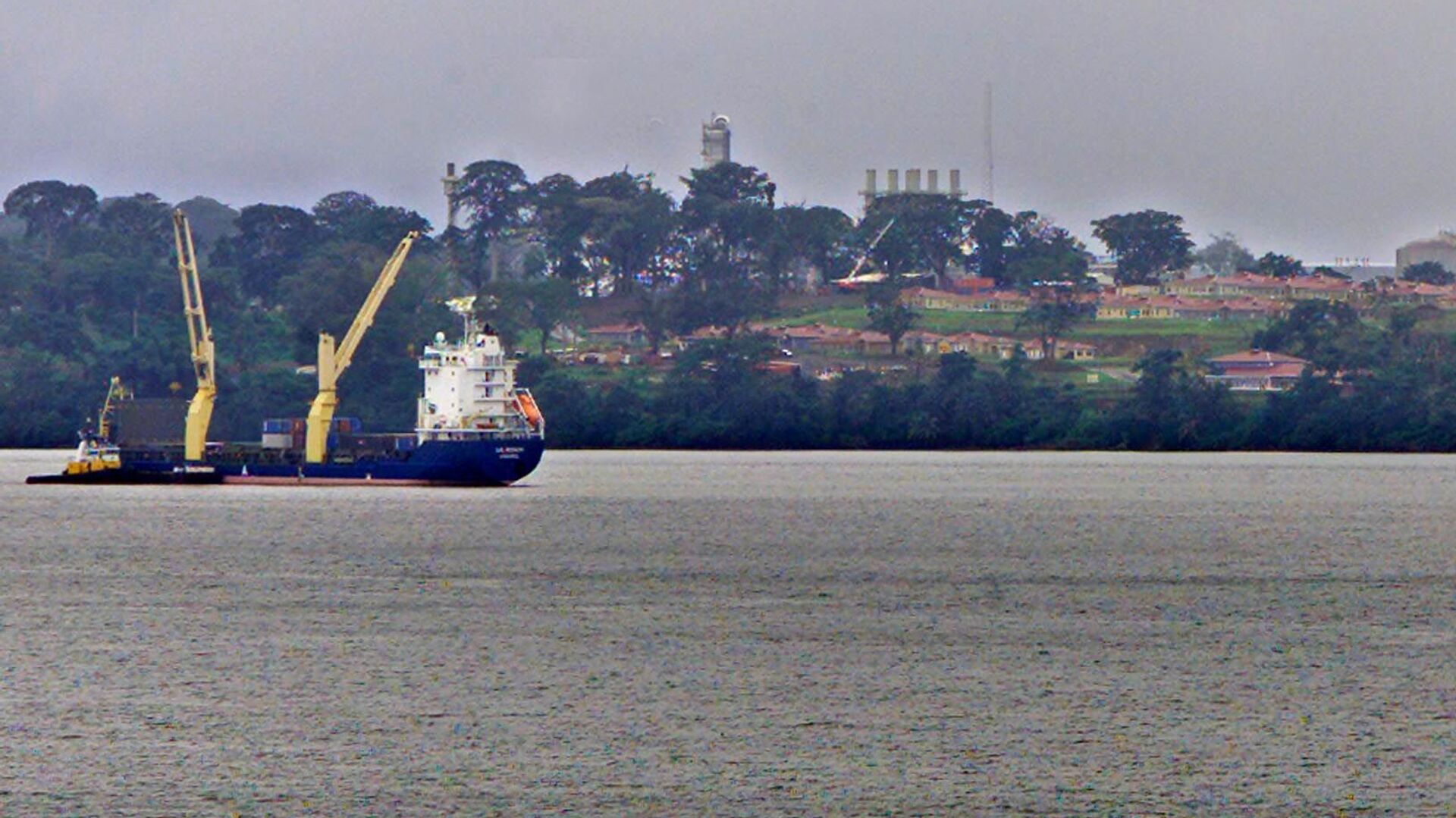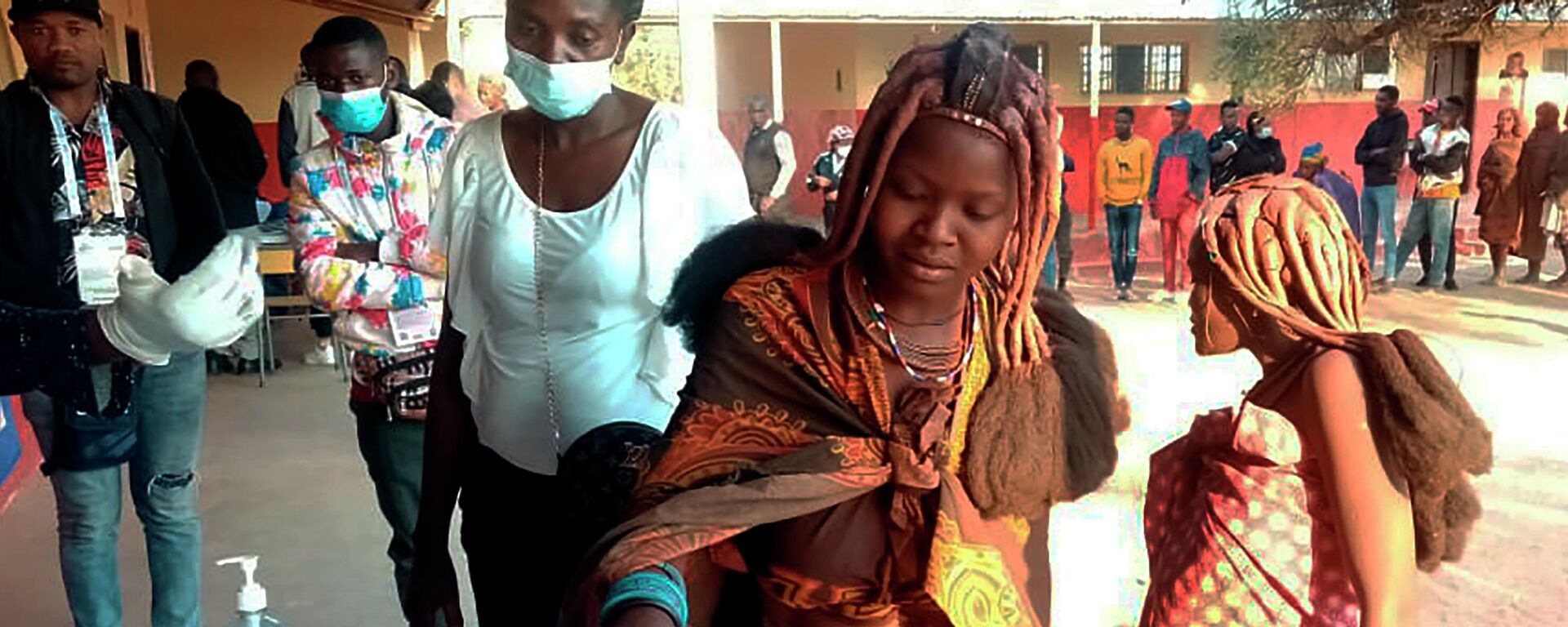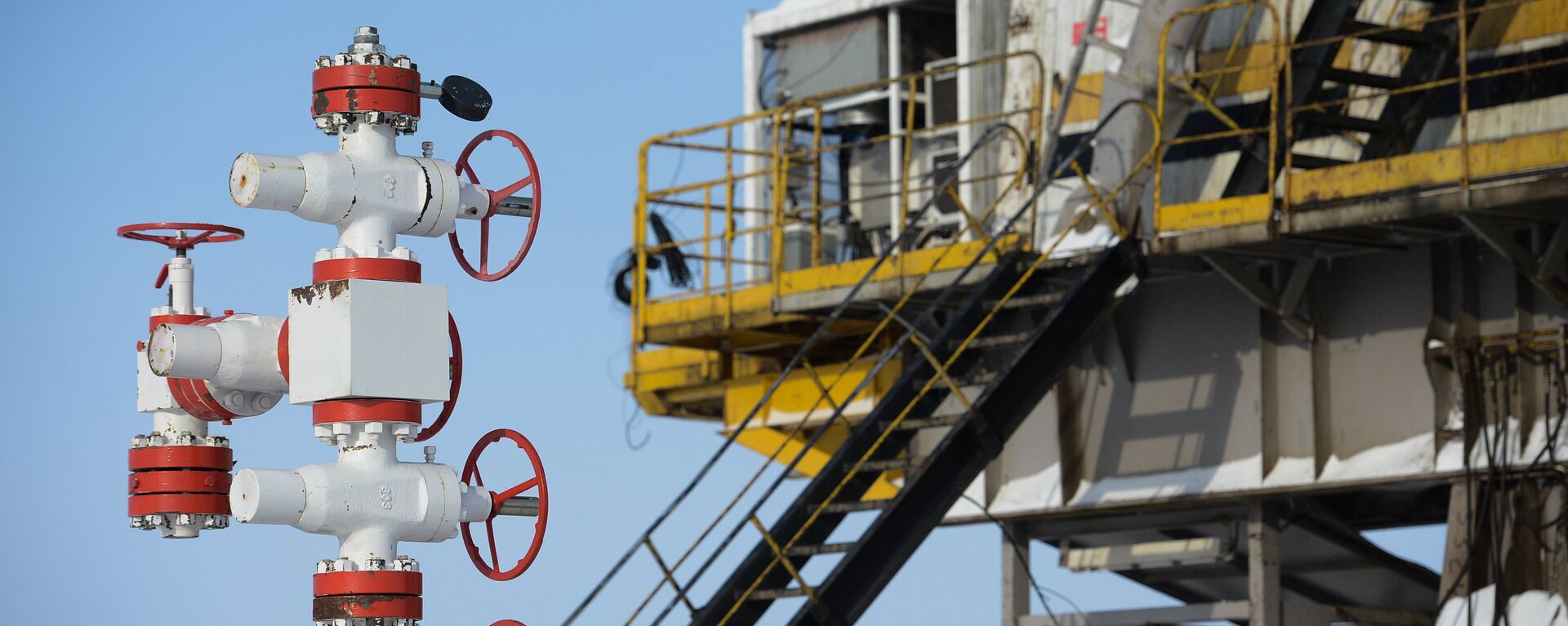Energy Experts: Russia Could be Instrumental in Building Central African Oil & Gas Pipelines
15:44 GMT 12.09.2022 (Updated: 11:28 GMT 24.11.2022)

© AP Photo / CHRISTINE NESBITT
Subscribe
A number of Central African countries signed an agreement on September 8 to create a regional oil and gas pipeline network by 2030 to ensure energy security, tackle energy poverty and boost the internal supply of hydrocarbons.
The Central African energy project will require foreign know-how, with Russian technical expertise capable of tipping the balance in favor of African energy projects, according to energy experts Dr. Mamdouh G Salameh and NJ Ayuk.
"Russians are the best when it comes to pipelines," stated Ayuk, executive chairman of the African Energy Chamber and CEO of pan-African corporate law conglomerate Centurion Law Group. "African ministers plan to be in Russian Energy Week and discuss this. They are also inviting Russian energy players to African Energy Week to have bilateral talks on how to use Russian or Chinese expertise to make this work."
Equatorial Guinea, Cameroon, Gabon, Chad, Angola, the Democratic Republic of Congo and Congo Republic – members of the Economic Community of Central African States (ECCAS) which signed the pipeline agreement – are all oil producers or possess substantial oil and gas reserves. At the same time, shortcomings in refining capacity and the lack of financing have left them dependent on imported refined products. As a result, they have been struggling with fuel and power shortages for years.
Most existing refineries are either not working or don’t have the capacity, acknowledged Ayuk, noting that there have been many plans to overcome dependence on imported refined petroleum goods previously.
"[There have been] a lot of feasibility studies but very little action from governments and the private sector," he said, adding that African governments have been largely focused on earnings from crude sales.
According to Ayuk, Central African states "need to make big decisions and push this for our own energy security and survival."
"The motivation of the Central African countries behind signing a deal to create a regional oil and gas pipeline network and hub infrastructures which will strengthen energy supply and reduce dependence on imports of refined products seems to be a valid and well-thought of proposal," echoed Dr. Mamdouh G Salameh, international oil economist and visiting professor of energy economics at ESCP Europe Business School in London.
He explained that of the top ten crude oil reserves in Africa, five are in the Central African countries of Gabon, Republic of Congo, Equatorial Guinea, Chad and Angola, with proven reserves estimated at 31.3 billion barrels (bb). "They also boast proven gas reserves exceeding 40.0 trillion cubic feet (tcf)," he added.
There are several promising projects on the table which have failed to materialize so far, according to the international oil economist.
"A case in point is the 4,128 km-long Trans-Saharan gas pipeline involving Nigeria, Niger and Algeria," said the international oil economist. "This proposed pipeline was first conceived in 1970 and is still languishing at the drawing board stage 42 years later despite many memoranda of understanding signed over the years, the latest of which just three months ago."
How to Make the Project Fly?
The recent project inked by a number of regional players at the Central Africa Business Forum in Douala, Cameroon, on September 8-9 envisaged building three multinational oil and gas pipeline systems approximately 6,500 km long, with accompanying storage depots, liquefied natural gas terminals, at least three refineries and gas-fired power plants linking 11 countries.
The memorandum of understanding concerning the ambitious deal was signed by the African Petroleum Producers' Organization (APPO) and the Central Africa Business Energy Forum (CABEF). West Africa's gas pipeline connecting Nigeria, Benin, Togo and Ghana served as one of the models for the new endeavor.
"While the projects could be very viable, building them is in my opinion beyond the financial and technical capabilities of these countries," suggested Salameh. "Therefore I doubt that they would see the light of day soon or ever. For that, they need huge foreign investments which won’t be forthcoming when the global economy is headed towards a very harsh recession."
Ayuk agreed that financing is still under question, adding, however, that the African Export–Import Bank, also referred to as Afreximbank – a pan-African multilateral trade finance institution - and other financial organizations, will be key. He also noted that "there is full alignment of all heads of state and the African energy chamber is mobilizing the private sector to support."
At the same time, Ayuk warned about potential resistance from various western environmental groups which have repeatedly thrown sand in the gears of the continent's projects under the guise of a climate change agenda.
"We also take note of the massive attack by western environmental groups on African fossil fuels and their plans to stop the project that is still at feasibility," the entrepreneur pointed out. "We know what they have done to oil projects in Mozambique and the East African Crude Oil Pipeline in Ugandan and Tanzania. We will have to fight to make this work."



